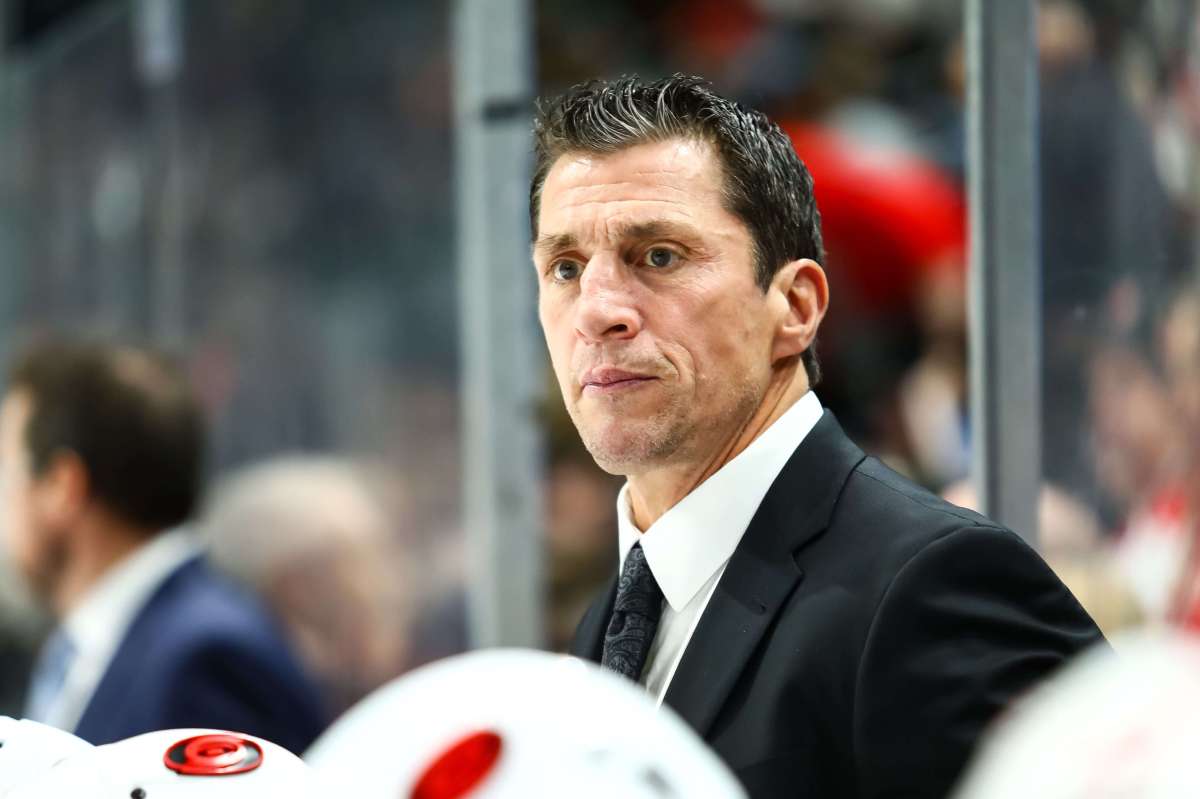Brind’Amour, Berube share common work ethic leading Hurricanes – that’s the core message here. This piece dives into how the coaching styles of Rod Brind’Amour and Bruce Berube, despite their differences, create a winning culture for the Carolina Hurricanes. We’ll explore their individual approaches, highlighting their shared emphasis on discipline, accountability, and a relentless work ethic. Get ready to see how this powerful combination translates into player development and on-ice success.
We’ll examine their distinct coaching philosophies, comparing their player management techniques, motivational strategies, and communication styles. We’ll also look at how these approaches foster team unity, accountability, and ultimately, victory. The analysis will include specific examples illustrating the impact of their shared values on player growth and team performance, providing a comprehensive look at what makes this coaching tandem so effective.
Rod Brind’Amour and Bruce Berube: A Shared Blueprint for Success: Brind’Amour, Berube Share Common Work Ethic Leading Hurricanes
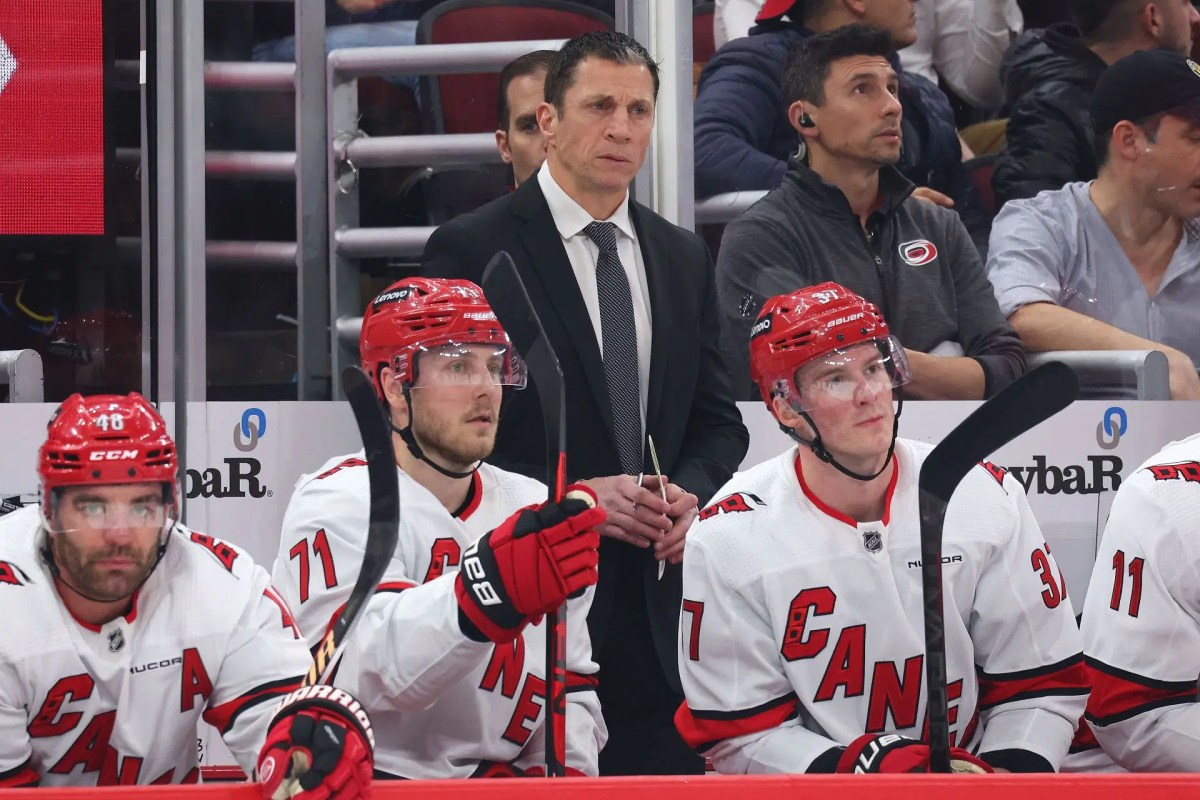
Rod Brind’Amour and Bruce Berube, two highly successful NHL coaches, share a remarkable similarity in their coaching philosophies despite their distinct personalities. Both prioritize a relentless work ethic, demanding discipline, and fostering a culture of accountability within their teams. This shared approach has yielded significant success, resulting in consistent playoff appearances and, in Brind’Amour’s case, a Stanley Cup victory.
Rod Brind’Amour’s Coaching Philosophy
Brind’Amour’s coaching style is characterized by a demanding yet supportive approach. He emphasizes a system of play based on speed, skill, and relentless forechecking, demanding a high level of commitment from his players. His management style focuses on individual accountability while building strong team unity. He uses in-game adjustments based on opponent tendencies and player performance.
Brind’Amour’s Player Management and Team Dynamics
Brind’Amour’s player management is characterized by open communication and a clear expectation of consistent effort. He builds trust through transparency and holds players accountable for their actions both on and off the ice. He fosters a team environment where players support each other, understanding their roles within a cohesive unit. He uses both positive reinforcement and constructive criticism to motivate and develop his players.
Examples of Brind’Amour’s In-Game Decision-Making
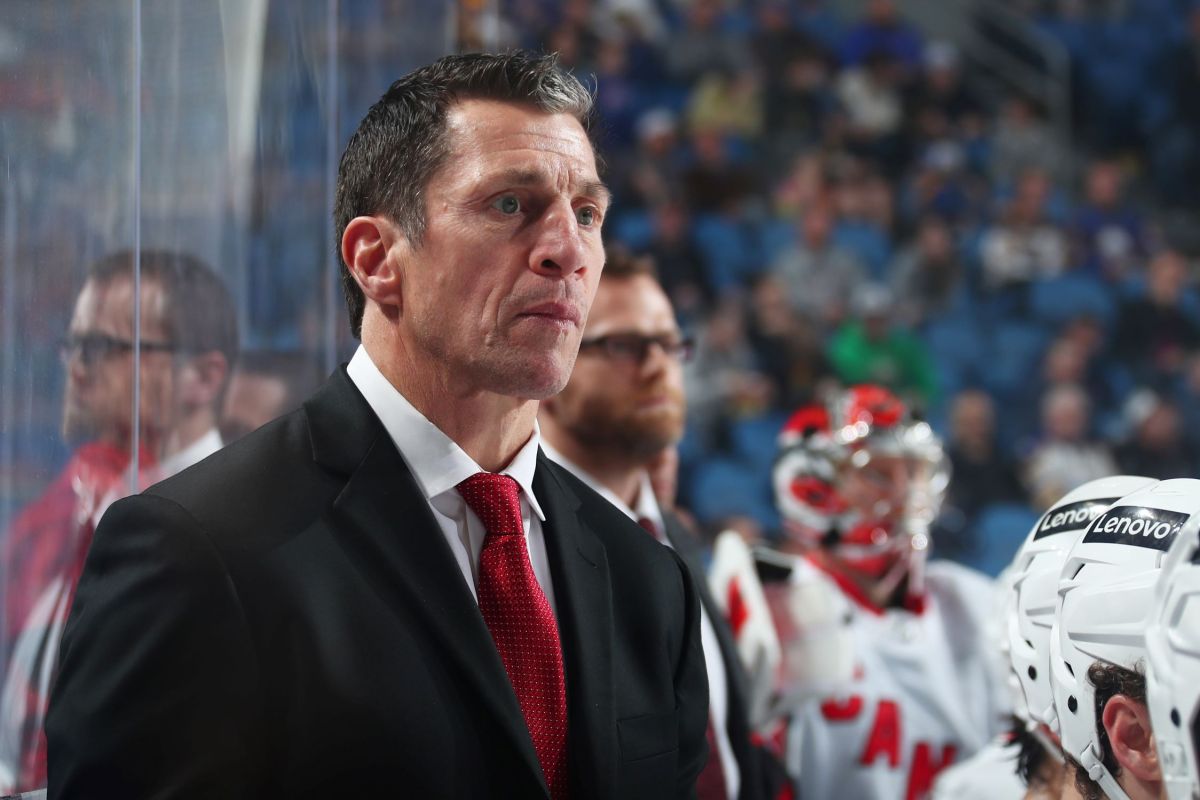
Brind’Amour’s in-game decisions often reflect his emphasis on adapting to the flow of the game. He’s known for making timely line changes to exploit matchups, adjusting defensive strategies to neutralize opponents’ strengths, and making bold power-play decisions based on player momentum and opponent weaknesses. For example, his strategic deployment of key players in critical moments, often resulting in game-winning goals, is a testament to his sharp tactical mind.
Comparison of Brind’Amour’s Coaching Style with Other Successful NHL Coaches
| Coach | Style | Player Management | Team Culture |
|---|---|---|---|
| Rod Brind’Amour | Structured, demanding, adaptable | Accountable, communicative, supportive | Team-oriented, disciplined, high-performing |
| Barry Trotz | Defensive-minded, detail-oriented | Disciplined, structured, results-focused | Highly structured, detail-oriented |
| Jon Cooper | Fast-paced, offensive-minded | Player-centric, empowering, supportive | Loose, fun, yet highly focused |
Bruce Berube’s Coaching Approach
Berube’s coaching philosophy centers on a physical, disciplined, and structured style of play. He demands intense effort and accountability, creating a team identity built on resilience and grit. He uses motivational techniques that emphasize hard work, dedication, and a strong team bond.
Rod Brind’Amour and his assistant, Dean Berube, are known for their intense work ethic, a shared dedication that fuels the Hurricanes’ success. It’s a level of commitment that reminds me of the intense investigation surrounding the recent incident, where you can read all about the details in this article: Car blown up in bomb scare near Regent Street ‘had its phone.
The dedication to finding answers in that situation mirrors the relentless drive Brind’Amour and Berube bring to the ice.
Berube’s Motivational Techniques and Emphasis on Physicality
Berube’s motivational techniques are often direct and demanding, emphasizing the importance of physical play and defensive responsibility. He instills a sense of pride in playing a tough, hard-nosed game. His communication style is direct and frank, leaving no room for ambiguity. This clear communication helps foster a unified team that understands its roles and responsibilities.
Brind’Amour and Berube’s shared dedication is a key factor in the Hurricanes’ success; their relentless focus mirrors the kind of grit needed to win tight games, much like the one analyzed in this ESPN piece: Tottenham 1-0 Liverpool (Jan 8, 2025) Game Analysis – ESPN. That match highlighted the importance of unwavering commitment, a quality that clearly resonates with the Hurricanes’ coaching staff and their winning strategy.
Comparison of Berube’s and Brind’Amour’s Coaching Approaches
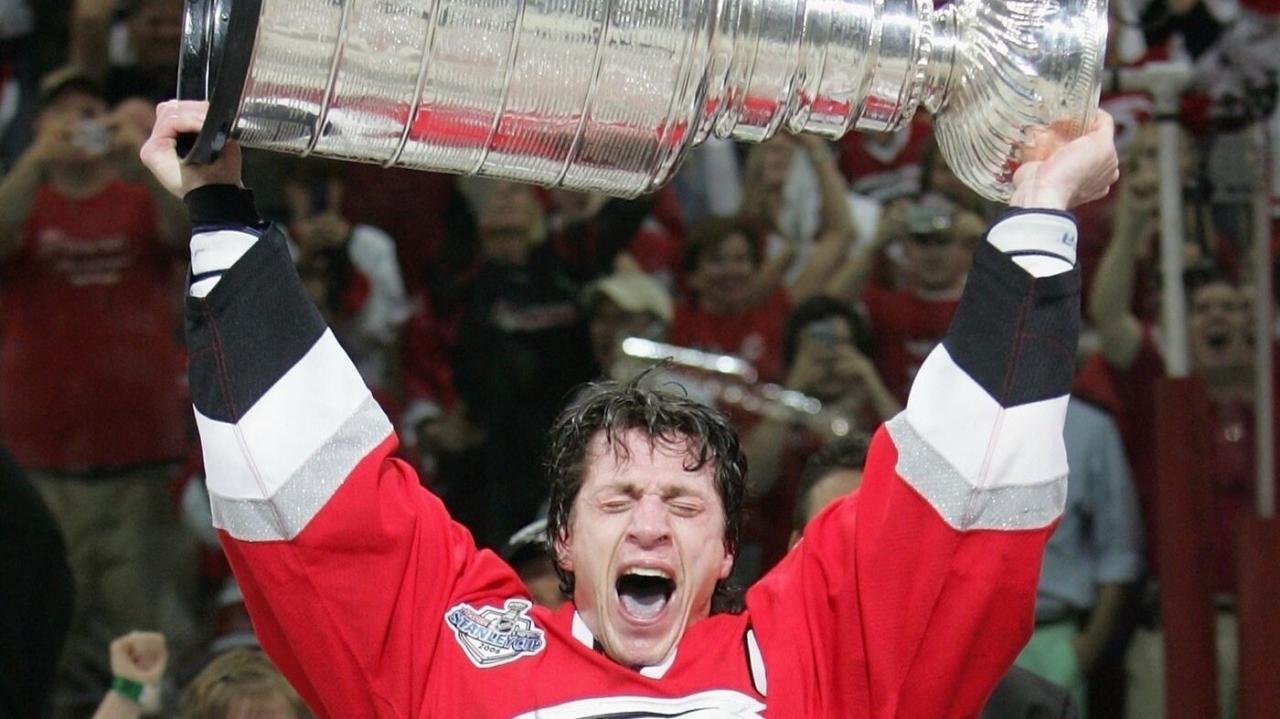
- Similarities: Both emphasize hard work, discipline, accountability, and team unity.
- Differences: Berube’s approach leans more heavily on physicality and a more direct, demanding communication style, while Brind’Amour’s style incorporates more flexibility and adaptability within a structured system.
Shared Work Ethic: Discipline and Accountability
Both Brind’Amour and Berube instill a strong work ethic and hold players accountable through consistent communication and performance-based expectations. Their disciplinary methods are firm but fair, ensuring that every player understands the standards expected of them. This shared emphasis translates directly into on-ice performance, evident in their teams’ consistent competitiveness and success.
Okay, so Brind’Amour and Berube’s dedication is really driving the Hurricanes’ success; their shared work ethic is infectious. It’s kind of like how, even with disruptions, things keep moving forward – check out this article about how Manchester Airport runways reopened, but passengers are facing delays. Just like the airport is recovering, the Hurricanes are showing resilience under their coaches’ leadership.
Their commitment is key to the team’s overall performance.
Accountability Methods Employed by Brind’Amour and Berube
| Coach | Accountability Method | Example |
|---|---|---|
| Rod Brind’Amour | Open communication, consistent feedback | Regular player meetings to address performance and team goals. |
| Bruce Berube | Direct communication, clear expectations | Publicly addressing player performance during post-game interviews. |
| Both | Healthy competition within the team | Promoting internal competition for ice time and key roles. |
Impact on Player Development
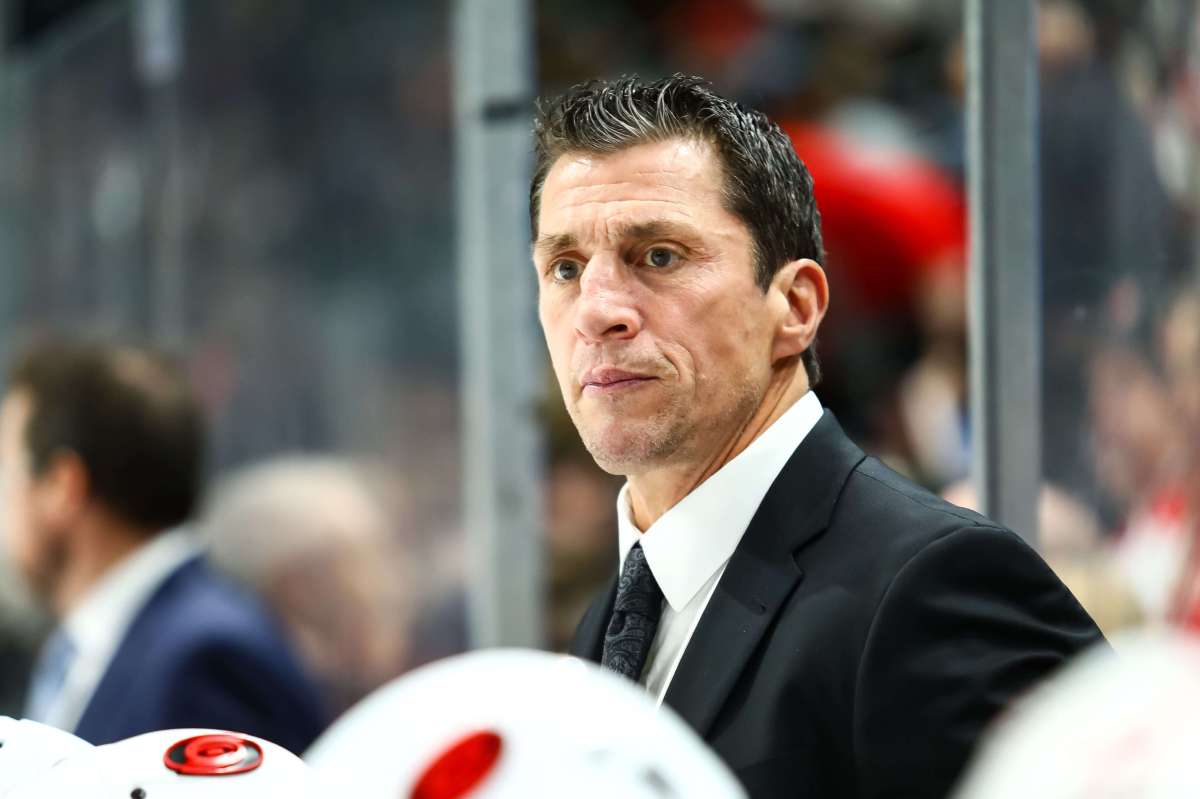
Both coaches have a proven track record of developing players. Brind’Amour’s system emphasizes skill development within a structured framework, while Berube’s focus on physicality and defensive responsibility builds a strong foundation for players to excel. Their shared emphasis on a strong work ethic contributes to the overall improvement of players under their tutelage.
Illustrative Example of Coaching Impact on a Player’s Career
Consider the development of Teuvo Teravainen under Brind’Amour. Initially known for his offensive skill, Teravainen’s defensive game significantly improved under Brind’Amour’s system, making him a more well-rounded and valuable player. This demonstrates the impact of a structured system coupled with a focus on accountability in player development.
Team Culture and Success
Both Brind’Amour and Berube cultivate a team culture centered on hard work, dedication, and a strong sense of camaraderie. This shared emphasis on a strong work ethic directly contributes to the team’s success, resulting in consistent playoff appearances and a championship for Brind’Amour’s Hurricanes.
Team Culture and Performance Examples, Brind’Amour, Berube share common work ethic leading Hurricanes
The Carolina Hurricanes under Brind’Amour are known for their relentless forechecking and cohesive team play. Teams coached by Berube are typically characterized by their physicality, defensive prowess, and unwavering determination. These cultures, driven by a shared emphasis on hard work, translate directly into strong on-ice performance and consistent competitiveness.
Outcome Summary
Ultimately, the success of the Carolina Hurricanes hinges on a shared philosophy between Brind’Amour and Berube: a relentless pursuit of excellence fueled by discipline and accountability. Their complementary coaching styles, while distinct, create a powerful synergy that fosters a winning culture and propels player development. The Hurricanes’ success isn’t just about talent; it’s a testament to the power of a shared work ethic, meticulously cultivated and effectively implemented by two highly respected coaches.
Commonly Asked Questions
What are some key differences between Brind’Amour and Berube’s coaching styles?
While both emphasize discipline, Brind’Amour might be considered more player-centric in his communication, while Berube’s approach can be more direct and demanding. Their approaches to player development might also differ slightly based on individual player needs.
How does their shared work ethic impact player morale?
The consistent message of accountability and hard work fosters a culture of mutual respect and shared responsibility. Players understand the expectations and are more likely to buy into the system, boosting team morale and unity.
Have either coach had significant coaching experience outside the NHL?
Yes, both coaches have extensive hockey backgrounds. Their experience at various levels likely contributes to their coaching philosophies.
